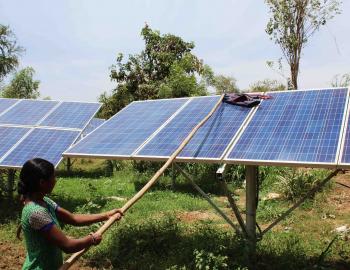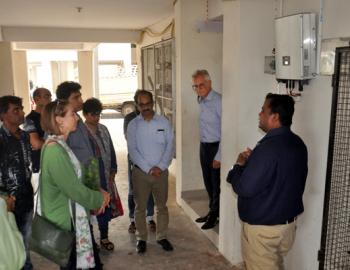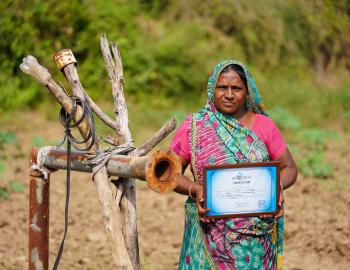Climate change and water resources planning, development and management in Zimbabwe
Climate change and water resources planning, development and management in Zimbabwe
Water is central to the Zimbabwean economy, people's livelihoods and their social well-being; its availability and reliability is a function of highly variable climatic conditions. Irrigated agriculture is the major water using sector while rain fed agriculture depends on reliable rainfall.
Agriculture not only has links to other economic sectors such as industry, but it is also important at household level because it employs the majority of the population. Power production which underpins most other production sectors depends to a large part on the flow of the Zambezi River either for hydropower generation or for the cooling of thermal power stations.
Even mining, a growth sector, ultimately relies on water for both processing and electricity production. The government of Zimbabwe has long recognized the threat from climate change and joined the United Nations Framework Convention on Climate Change (UNFCCC) in 1992 and acceded to the Kyoto Protocol in 2009.
It is currently preparing a National Climate Change Response Strategy (NCCRS) that is intended to mainstream climate change thinking into all key economic sectors and to bring about an integrated response across all economic sectors.
Zimbabwe strategy will largely be based around adapting to the threats from climate change so that detrimental economic and social impacts are minimized and opportunities are seized. Given the implications of climate change for the hydrological cycle and the centrality of water to the economy and to social well-being, water needs to be at the core of the NCCRS. This Issues Paper, requested by the former Ministry of Water Resources Development and Management as a recommendation of the NWP, will contribute to the NCCRS by examining opportunities for adaptation to climate change in the water resources sector, using both structural and non-structural measures. It uses models to provide preliminary estimates of the possible impacts of climate change in 2050 and 2080 on these water resources.
A number of opportunities to adapt to these impacts are discussed. Many of these adaptation opportunities constitute no-regrets actions, in that they are actions that are worth undertaking in their own right, irrespective of the severity of impacts from climate change.
[Author abstract]



